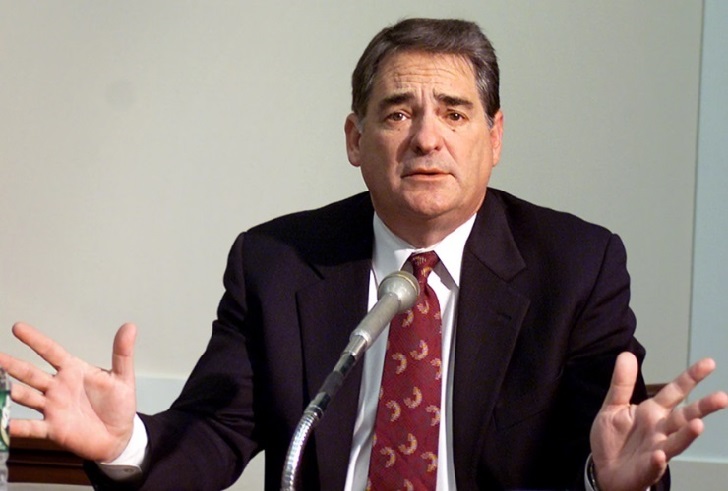Why Are Prescription Drugs So Expensive?
Why Are Prescription Drugs So Expensive?

(continued from Big Pharma Drugs)
"Why are prescription drugs so expensive?"
Prescription drugs are so expensive not because their ingredients are expensive or because the research and development of new drugs cost so much. Prescription drugs are so expensive in the U.S. because of Big Pharma's corruption and because there are people like the Louisiana Congressman Billy Tauzin (photo).

When Tauzin became the chair of the House Committee on Energy and Commerce in 2001, big pharmaceutical companies ("Big Pharma") poured money into his re-election campaign fund. After he was re-elected in 2002, Big Pharma offered to pay him a multi-million dollar salary and make him the president of its lobby Pharmaceutical Research and Manufacturers of America (PhRMA) if he would draft and champion a bill that will add prescription drug benefits to Medicare but make it illegal for the federal government to negotiate the price of those drugs against their makers, and then flooded the Capitol with nearly one thousand cash-clutching lobbyists to buy support for the bill.
The bill, deceptively named "The Medicare Prescription Drug, Improvement, and Modernization Act," was debated in Congress for almost 6 months but was never popular, as the Congress never likes to restrict its own power and everyone knew that Big Pharma will raise drug prices if the bill were to become law. But whenever it appeared to be dying, Big Pharma lobbyists threw more money at the Congressmen and Senators until enough of them switched positions to keep it alive.
The bill came to a vote on November 22, 2003 in the middle of the night at 3:00 AM but was losing 219-215 after 45 minutes (source). Instead of letting the bill die, Speaker Dennis Hastert decided to keep the roll call open until he had enough votes to pass the bill. Hastert, Senate Majority Leader Tom Delay and Big Pharma lobbyists then ran around making offers to get people to switch votes. Congressman Nick Smith of Michigan, for example, switched his 'Nay' vote to 'Yay' after being offered "substantial and aggressive campaign support" (source) for his son, who was running to succeed him. By 5:53 AM, enough votes had been bought, so the bill passed. The roll call to pass this bill remains by far the longest in U.S. Congress' history.
Billy Tauzin did not seek re-election in 2004. The day after his term ended in January of 2005, Big Pharma named him President and CEO of its PhRMA lobby and began paying him the promised multi-million dollar annual salary, from $2 million in 2005 to $11.6 million in 2010 (source), when this beacon of corruption retired rich from PhRMA. But Tauzin was hardly an exception. Many of the other lawmakers and other government officials who supported the bill soon left to join Big Pharma lobbies, which rewarded them as well with some of the excess profits from prescription drug prices, which began to rise steeply. For example, the three makers of insulin raised their prices 168%, 169% and 325%, respectively in just 5 years, from 2010 to 2015 (source).
An overwhelming majority of Americans want the law amended to enable the federal government to negotiate and lower the prescription drug prices, but the members of Congress remain captive to Big Pharma, which pours $400 million into campaign funds before every election to ensure that people get (re)elected who will let it continue to overcharge sick Americans. While $400 million is a lot of money, Big Pharma is happy to spend it since it is only 0.08% of the $500 billion that it forced Americans to pay for prescription drugs in 2018 alone (source).